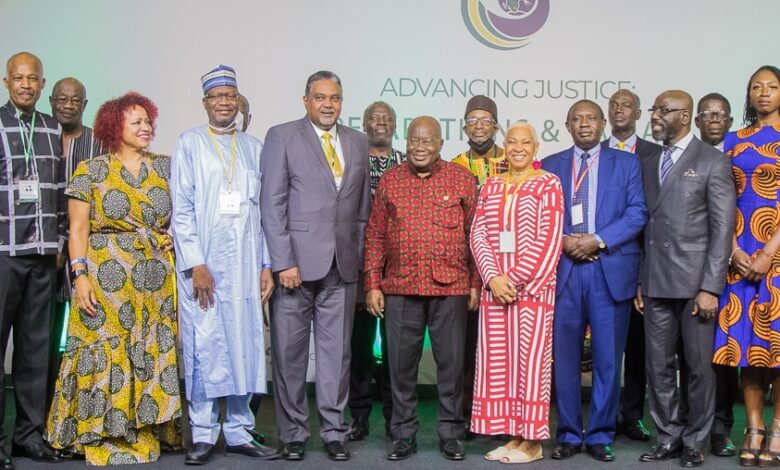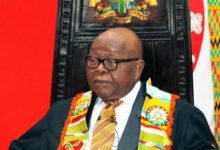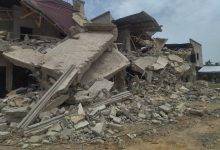
President Nana Addo Dankwa Akufo-Addo is demanding a formal apology and an appropriate compensation from European nations involved in the transatlantic slave trade as well as the colonisation of the African continent.
Speaking at the Reparations and Racial Healing Summit in Accra yesterday, President Akufo-Addo stressed that reparation for Africa and the African diaspora was long overdue.
The President’s demand comes in the wake of similar demands by international organisations such as the Global Afrikan Congress fighting racial injustice and advocating reparations for black people.
The summit is being held to discuss and examine options for addressing the reparation intervention gaps in the world.
According to organisers of the event, the Africa America Institute, the African Union Commission, and the Office of Diaspora Affairs at the Jubilee House, the existing campaigns for reparations appeared uncoordinated with lack of a comprehensive strategy and agenda.
President Akufo-Addo noted with regret that the subject of reparations “becomes a debate” only when it involved Africa and Africans.
According to the President, when the British ended slavery, all the owners of enslaved Africans received reparations to the tune of twenty million pounds sterling, the equivalent today of 20 billion pounds sterling, but enslaved Africans themselves did not receive a penny.
In the United States, he said owners of slaves received 300 dollars for every slave they owned; the slaves themselves received nothing.
Indeed, in the case of Haiti, the country had to pay reparations amounting to $21 billion to French slaveholders in 1825 for the victory of the great Haitian Revolution, the first in the Americas and the Caribbean which freed the slaves.
“Native Americans have received and continue to receive reparations; Japanese-American families, who were incarcerated in internment camps in America during World War II, received reparations.
“Jewish people, six million of whom perished in the concentration camps of Hitlerite Germany, received reparations, including homeland grants and support.”
“So, it is time for Africa, 20 million of whose sons and daughters had their freedoms curtailed and sold into slavery, also to receive reparations,” he said.
According to the President, no amount of money could restore the damage caused by the Trans-Atlantic Slave Trade and its consequences, which had spanned many centuries.
“Nevertheless, it is now time to revive and intensify the discussions about reparations for Africa. Indeed, the time is long overdue,” he said.
He urged participants at the summit not to overly concern themselves with modalities for the payment of reparations, but, rather, work to establish justice in the call for reparations.
“And, even before these discussions on reparations conclude, the entire continent of Africa deserves a formal apology from the European nations involved in the slave trade for the crimes and damage it has caused to the population, psyche, image and character of the African the world over,” the President added.
With the Caribbean Community, CARICOM, having taken the lead in the reparations debate, President Akufo-Addo urged the African Union to engage with “our kith and kin from the diaspora,” and form a united front to advance the cause of reparations.
“The discourse on reparations cannot succeed without emphasis on racial healing. We need to heal from the wrongs of the past in order to capitalise on the opportunities that await us in the future,” he added.
The Accra summit seeks to create a platform for the unification of a transcontinental plan for reparations.
It will also provide an opportunity for various actors on the continent and from the Diaspora to commit to redefining strategy, build bridges and engender trust in the global campaign.
The summit will also explore healing approaches from the continent as well as begin a dialogue process that will unpack the role of Africans in the slave trade.
The thematic areas being discussed at the plenary include; “Reparatory Justice and Healing Reflections for the need to acknowledge collective responsibility for advancing reparative justice and healing”.
Participants are also discussing “Reparations Legislation in the United States, Barbados, and elsewhere, drawing lessons from HR40 and its status and how the global fight for reparations can help elevate the issues in the US, Caribbean, and elsewhere.”
BY YAW KYEI






